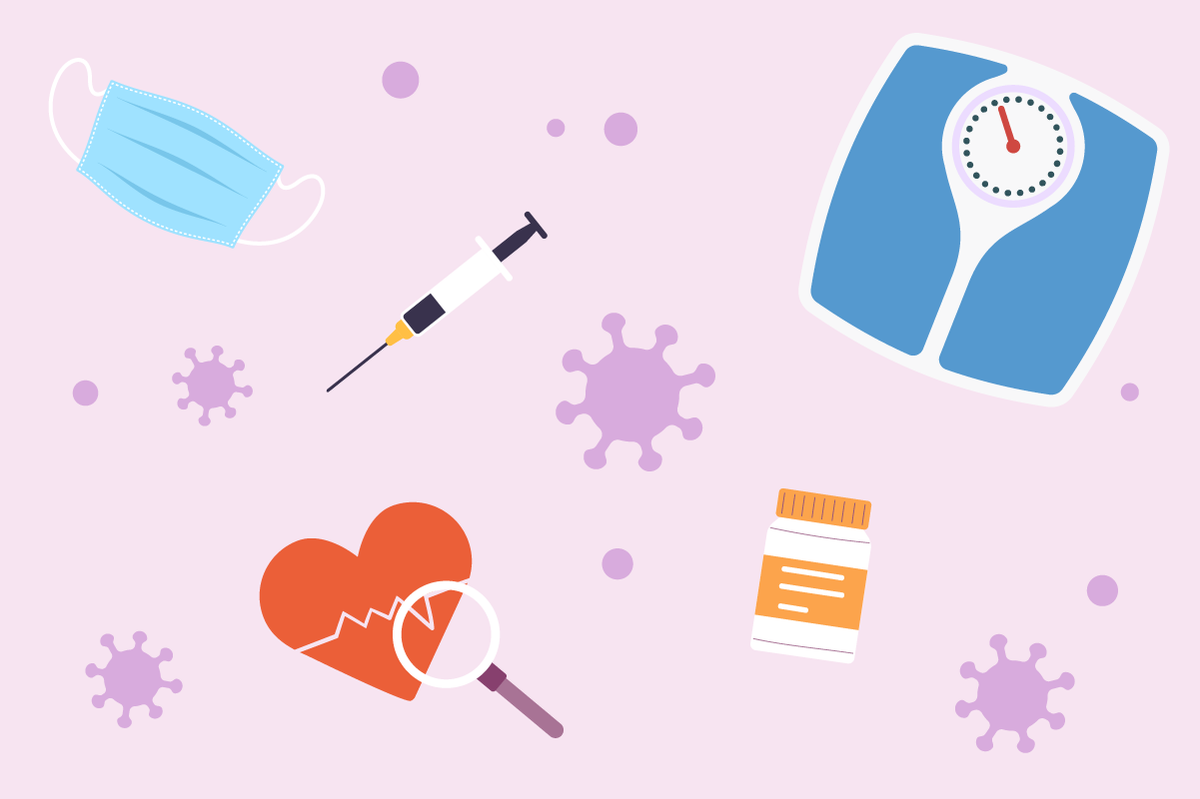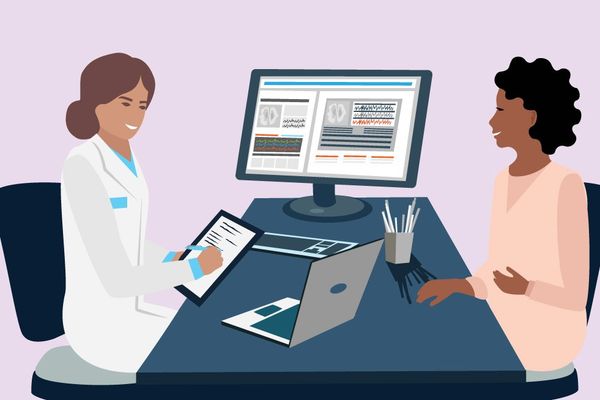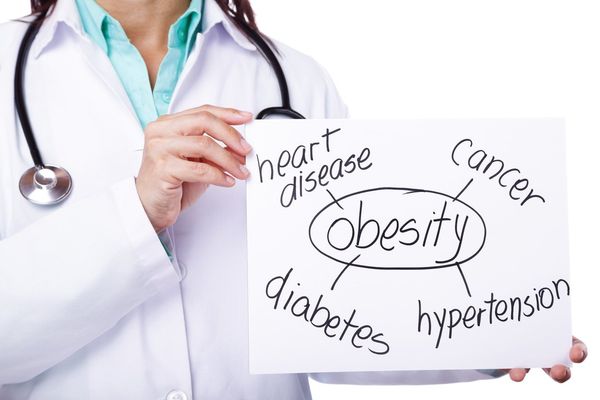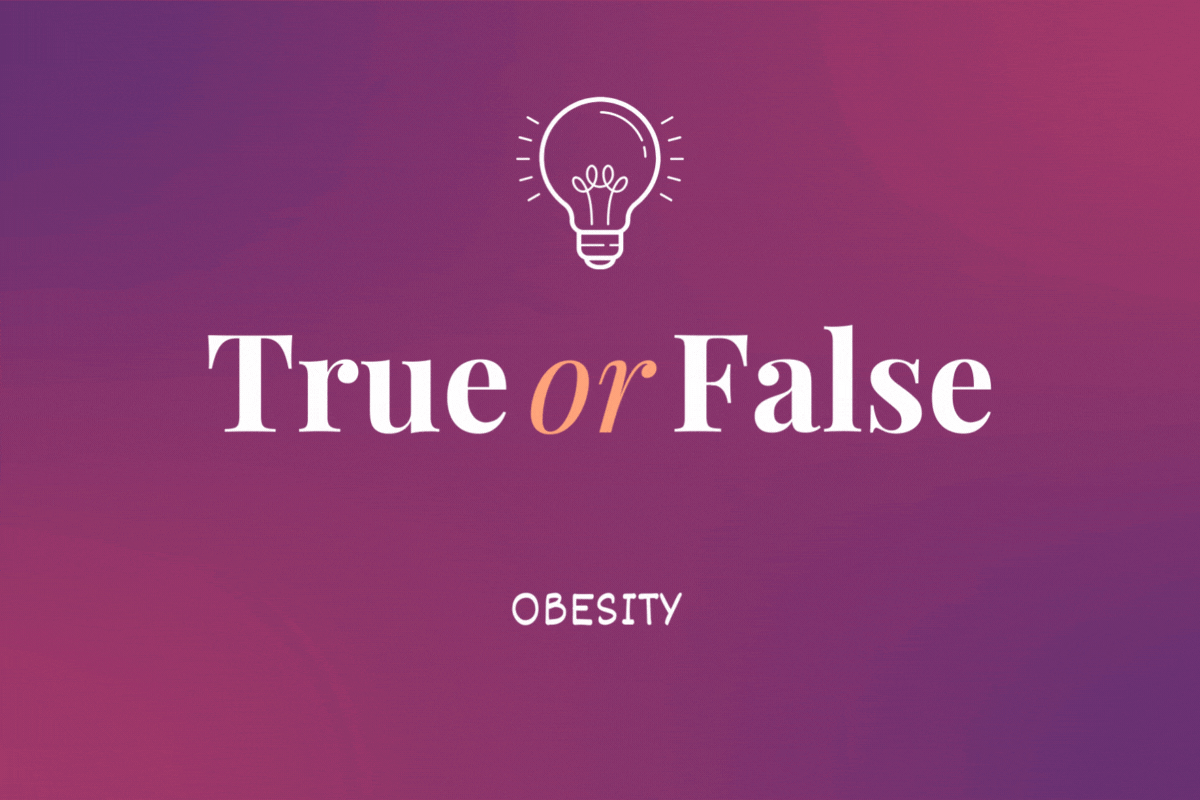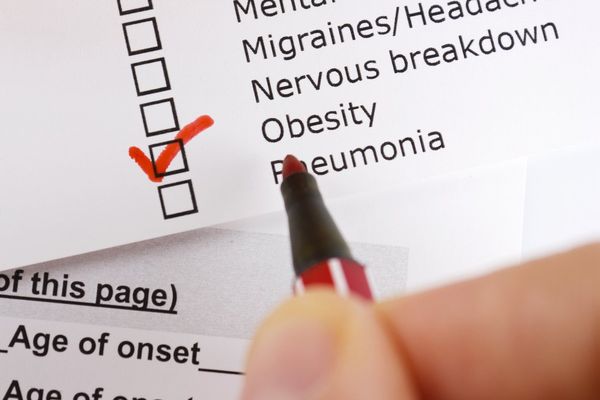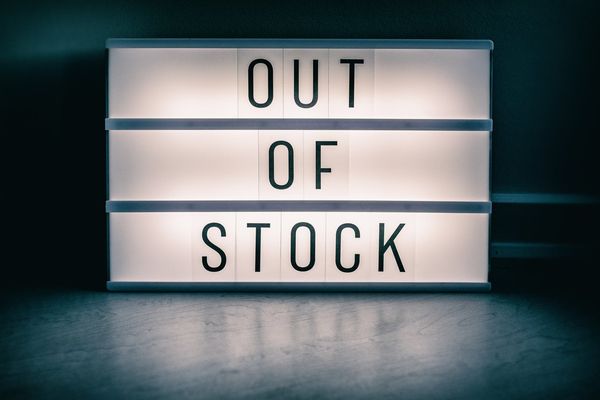Even before Covid-19 reset life as we know it, I struggled with taming my sweet tooth and staying motivated to go to the gym as often as I should. Once the pandemic shutdowns arrived, I cocooned with my husband, our college-aged son and our three cats. While I was lucky to be able to do that, let’s just say staying at home 24/7 did not help me achieve my health goals.
I was far from alone in this.
If you were cooped up with your family for months on end, working from home while trying to homeschool, and staying up way too late to binge-watch the latest “it” series, falling off the health wagon probably became all too easy.
People living with obesity had a 7 in 10 chance of gaining weight during the pandemic
Almost half of all Americans gained weight during the early part of the pandemic. And Americans living with obesity were more likely to gain weight during the pandemic than people with slight overweight or a normal weight. According to the Economic Research Service of the U.S. Department of Agriculture, the number of adults with obesity increased by 3% during 2020.
This is particularly concerning because having obesity puts you at greater risk of having severe illness from Covid.
Devika Umashanker, M.D., director of obesity medicine at Hartford HealthCare in Connecticut, has seen this firsthand. “The majority of my patients gained weight during the pandemic, and many are still struggling to get back on track,” she said. “There’s so much easy access to food at home. We also saw individuals feeling very isolated, anxious and depressed because of Covid-19, which had a lot of impact on weight gain.”
The pandemic kept many people from reaching their health goals
Covid created a variety of challenges to achieving and maintaining healthy habits. Many people experienced:
- Unhealthy changes in sleep patterns
- Increased eating as a coping mechanism
- Increased use of alcohol, tobacco or recreational drugs
- Decreased physical activity and exercise
It takes awhile for clinical research to catch up with current events, but early studies do seem to be showing that many Americans struggled to maintain healthy habits during the worst of the pandemic.
For example, a study published in JAMA Network Open compared alcohol consumption before the pandemic with how much people drank during it. The study found a 41% increase in heavy drinking (four or more drinks on one occasion) among women during the pandemic. And nearly 1 in 10 women reported increased alcohol-related problems during the pandemic.
Chronic conditions, weight and severe Covid
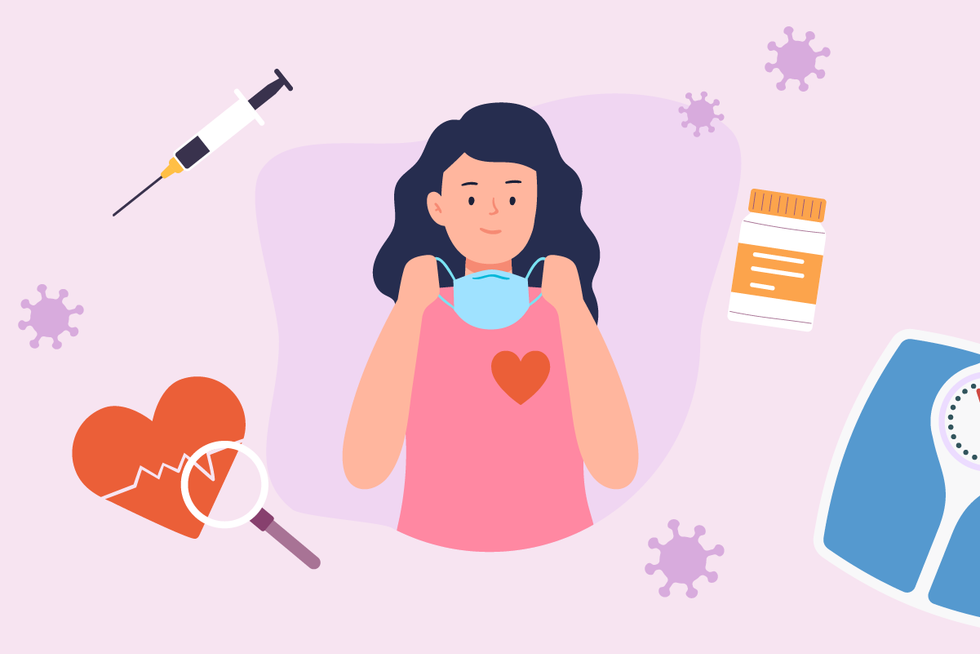
The Covid health emergency may be over, but the virus is still very much with us. And the same Covid risk factors that can make you more likely to develop severe illness or long Covid still exist, too.
Almost 4 in 10 Americans are living with obesity and 6 in 10 Americans live with at least one chronic condition, such as heart disease, stroke, cancer or diabetes. What’s more, these same conditions are all Covid-19 risk factors for severe illness.
Read: Are You at High Risk for Serious Disease from Covid-19? >>
“We do see an association between individuals who [have overweight or obesity] and a higher risk factor for getting severe Covid-19,” Umashanker said. “We think it has a lot to do with the inflammatory state we associate with obesity.”
Taking steps for better health

There’s no time like the present for regrouping on your health goals. In addition to enjoying the benefits of better health, the upside is that, if you do get Covid, you could be less likely to have severe side effects.
Umashanker tells her patients that achieving good health is a process. “Many of my patients still haven’t been able to get back to their pre-Covid baseline and about 25% still don’t feel comfortable going back to the gym,” she said. She works with them to think of creative ways to put physical activity and healthy habits back into their lives.
Suggestions for getting healthier after Covid might include things like:
- Recommit to healthy eating. That includes loading up on fruits, vegetables and lean proteins while limiting excessive fat, salt and sugar intake.
- Get enough sleep. Reestablish a consistent nighttime routine that gives you the chance to sleep for at least seven hours consistently. Limit screen time before bed.
- Increase your physical activity. Every little bit helps. Your goal should be to get at least 2–1/2 hours of exercise per week.
- Consider yoga, meditation or breathing exercises to help you remain focused on good health. It’s so easy for real life to get in the way, so set aside time to clear your mind or reach your health goals.
- Limit alcohol intake. If you got into the habit of routine or excessive drinking during the pandemic, it’s time for a reset. If you drink, do so in moderation, which means one drink per day for women.
- Don’t smoke or use recreational drugs. Talk to your HCP if you need help making changes in this area.
- Take your medications as prescribed and keep current with medical appointments and tests. That’s the best way to prevent major health issues.
Be Covid-Smart
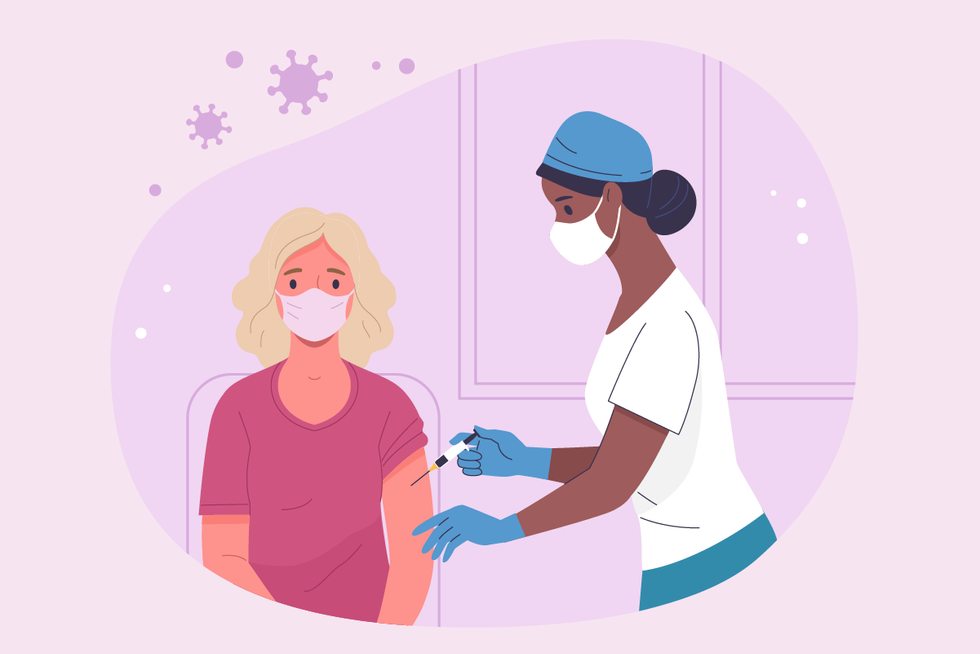
In many ways, life seems back to normal. But we can’t pretend that Covid is no longer a threat, especially if you’re living with obesity.
To stay protected from Covid:
- Stay up to date with your Covid vaccines. Vaccination reduces the severity and length of long Covid and protects you from severe disease.
- Stay home if you feel sick. Wear a mask if you must go out.
- Call your HCP promptly if you think you might have Covid or have tested positive and are at high risk of getting very sick.
- Continue to avoid people who are sick with confirmed or suspected Covid.
- Be respectful of people who still need to take all Covid precautions. People with cancer, heart and lung disease or immune system problems may ask you to wear a mask around them. Please do it so these vulnerable people can continue to ease back into normal living.
Ideally, your HCP will be there through it all. “If you’re looking to change your life trajectory and improve your quality of life, your primary care provider wants to help,” Umashanker said. “That means working to limit your preventable risks from diseases like Covid and developing a treatment plan for all conditions known to worsen Covid infections, and that includes obesity.”
This resource was created with support from Pfizer.
- Obesity, Racism and Covid: A Deadly Combination ›
- The Intersection of Long Covid and Obesity ›
- Reclaim Your Wellness ›
- COVID-19 Reveals How Obesity Harms the Body in Real Time, Not Just Over a Lifetime ›
- Obesity Puts You at Higher Risk for Severe Illness from Covid-19 ›
- Ask the Expert: Lung Cancer in Women - HealthyWomen ›
- Am I at High Risk for Severe Illness from Covid-19? - HealthyWomen ›
- Ask the Expert: Covid-19 and Obesity - HealthyWomen ›
- Navigating Obesity and Stress Two Years Into the Covid-19 Pandemic - HealthyWomen ›

